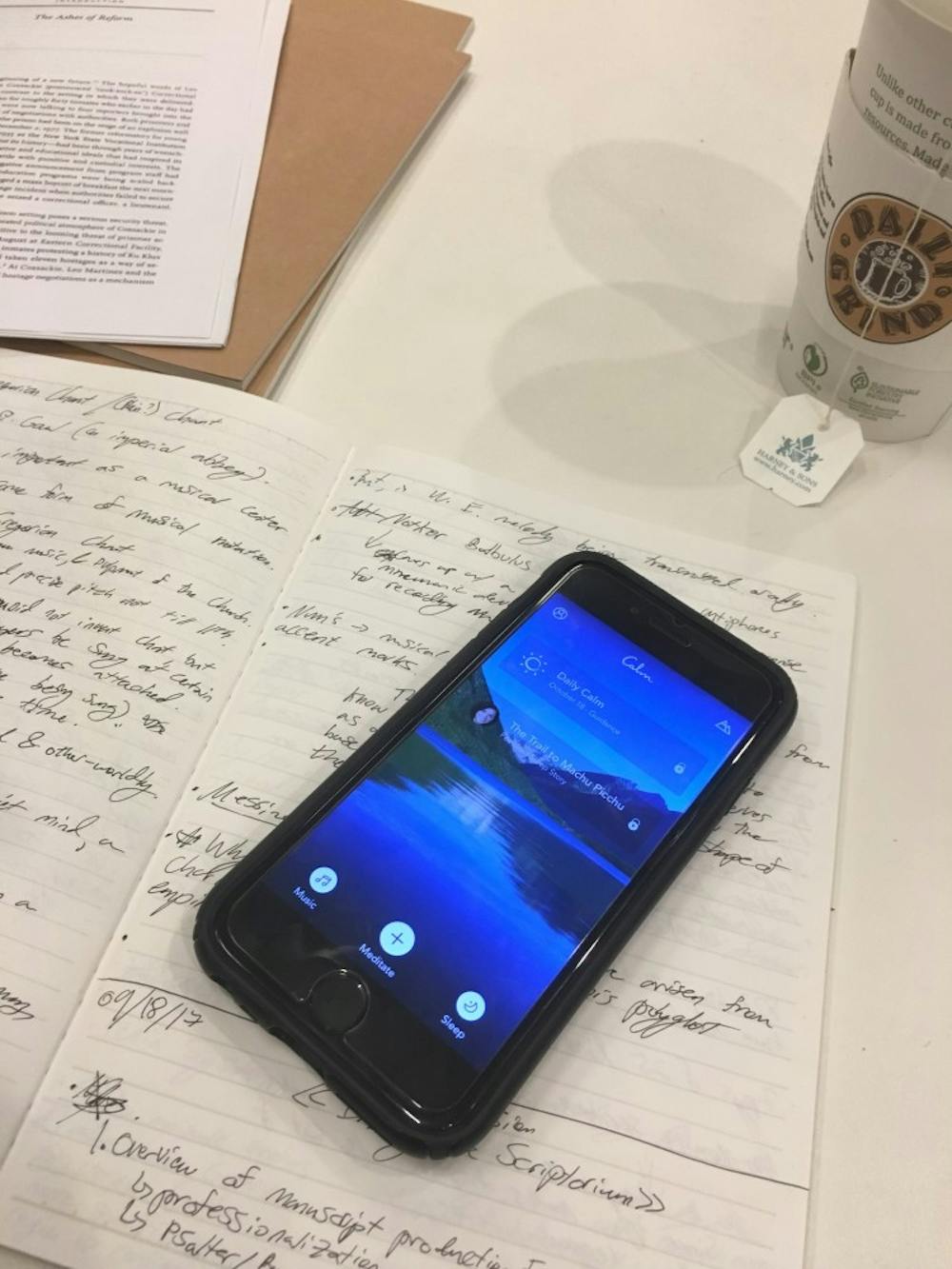As part of an ongoing effort to make mental health resources more accessible to the Hopkins community, the Counseling Center has begun promoting Calm, an app that offers guided meditation, bedtime stories and music to help people relax and de-stress.
Earlier this year, a liaison from Calm contacted the Counseling Center and the Student Government Association (SGA) about sharing the app with Hopkins students.
Starting this semester, students, faculty and staff may subscribe to the app during the University’s year-long free trial.
Christine Conway, associate director of outreach and sexual assault services at the Counseling Center, said that according to the company around 500 Hopkins affiliates have downloaded Calm since The Hub first advertised it on Oct. 4.
She said that the app can help people take a break from their busy schedules.
“We’re multitasking, we’re on our phones, we’re doing multiple things at one time, and that can cause more stress,” Conway said. “What this does is allow you to slow down a little bit and practice focusing on one thing at a time.”
SGA Sophomore Class Senator Alex Walinskas also explained how students can use Calm in addition to other mental health resources on campus.
“Even if they’re already using the Counseling Center or other ways to deal with mental health, it’s another thing they can use during the day,” she said.
Freshman Julia Marchyshyn, a member of the mental health advocacy group Yesplus, has used Calm in the past and believes that it will be beneficial in helping students relieve stress.
“It’s a really good break from studying... to meditate for five or 10 minutes,” she said.
Marchyshyn also said that YesPlus supports Calm and is working to promote it on campus. She added that it is important to encourage students to use mental health resources.
“I see a lot of stigma around mental health, especially on this college campus,” she said. “I feel like people don’t think it’s as important as it is, and I would just like to see people trying to better help themselves.”
After Calm reached out to SGA about publicizing the app, Walinskas and fellow Senator Maya Foster presented Calm to SGA and brought up the possibility of endorsement. Foster believes that it would be a good idea to market Calm to the student body.
“I was a strong proponent for sharing this information and learning more about the app and how it would help students,” she wrote in an email to The News-Letter.
Walinskas noted that SGA is not currently endorsing Calm but is considering it as one of a number of mental health initiatives to be marketed in the coming months.
“We think it’s a great resource to have for free, but we’re waiting to develop a comprehensive list of resources before we go and push it out, so it’s not the only thing that we’re endorsing,” she said.
Foster wrote that reception to Calm was not wholly positive within SGA when she presented it to the Senate. Members questioned the purpose of sharing an app that may not be free after this academic year.
Some advised that SGA focus more on advertising apps it was already endorsing, such as Atrium. Founded by two Hopkins students, the app connects users struggling with mental health to peers and licensed therapists.
SGA is currently in the process of reviewing the Mental Health Task Force draft recommendations that were released this spring. Both Walinskas and Foster discussed other mental health initiatives SGA is working on, like further promoting the Counseling Center and handing out snacks in the Brody Learning Commons during exam periods.
“Before we actually go out with any communications on mental health resources this year, we’re just trying to make sure that we all get to the same page as a body on what we want to promote,” Walinskas said.
According to Conway, Calm does not currently know if it will continue to offer the app for free next year. Depending on Calm’s popularity, Hopkins may consider subsidizing the app, which means that students may have a discounted or free subscription. Typically, a subscription to Calm costs $60 per year.
“Maybe there’s a way to see who’s using it and see how they like it before a decision is made about next year,” she said.
Free subscription to Calm is currently offered at a number of other college campuses, including Princeton University and New York University.





